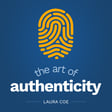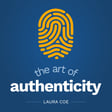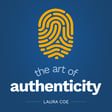
Rupert Spira: You Are the Happiness You Seek
In this episode, Rupert Spira, teacher, spiritual leader, and writer, teaches us about the nature of reality and the source of lasting peace and happiness. He explains the direct path and non-dual philosophy. As well as, elaborating on his latest book, You Are The Happiness You Seek.
After spending twenty years immersed in the teachings of classical Advaita Vedanta, he met his teacher, Francis Lucille, who introduced him to the Direct Path approach whereby one may recognise the source of peace and happiness in oneself.
Rupert has written several books and holds regular meetings and retreats online, as well as in Europe and the United States. He is also a noted potter, trained in the British Studio Pottery school, with work in public and private collections. www.rupertspira.com


